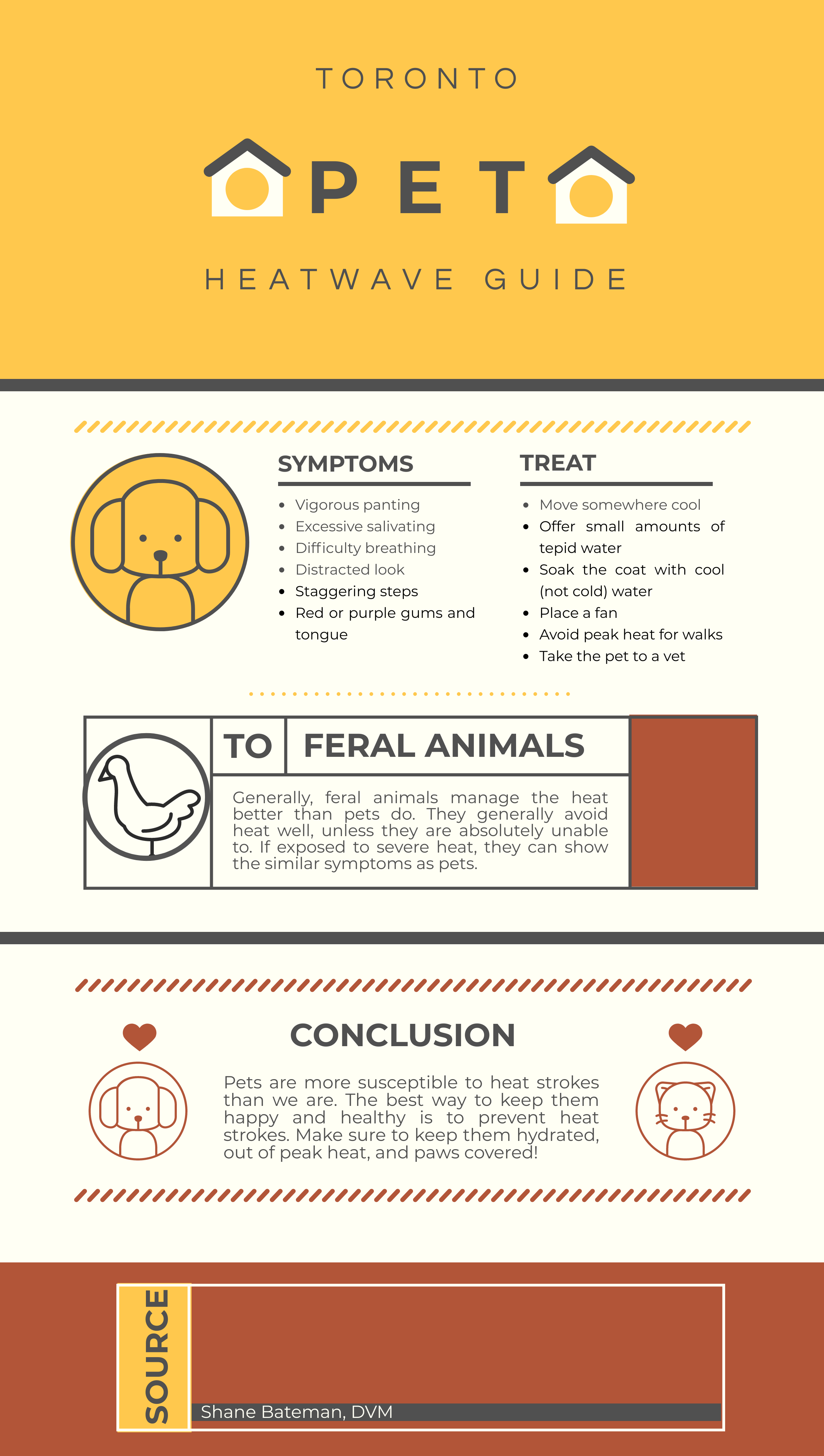
Sewon Hwang
Toronto is still projected to have a few more hot days before winter and those high temperatures and extreme humidity could be harmful, if not deadly, for pets.
Temperatures are projected to be in the upper 20s this week, according to Environment Canada, and Toronto pet owners should know how the heat could affect their furry companions, said Shane Bateman, an emergency and critical care veterinarian at the Ontario Veterinary College.
He said it’s important to be aware of the symptoms animals can experience when they get overheated, as the best way to treat it is to act fast.
Symptoms of heat exhaustion in animals include excessive salivation, panting, heaving, and distracted reaction, Bateman said.
“These would all be sort of symptoms that they’re trying very, very hard to regulate their body temperature, and that exertion that they’re utilizing to try to maintain their body temperature at a cooler point may in fact actually be causing part of the problem,” he said.
Heavy breathing and panting can be too exhausting for an animal experiencing heat exhaustion, which can lead to more severe symptoms, such as collapsing and gastrointestinal problems, like vomiting and diarrhea, he said.
Feral animals could also show similar signs of heat exhaustion, though they manage the heat well by avoiding direct sun and finding places to cool off in during peak heat periods, Bateman said.

“A lot of us are probably quite familiar with the more traditional heat-related illness, but I think it’s also really important to recognize there can be other consequences of being out in this heat as well,” Bateman said. “On some of the hottest days that we’ve experienced, the pavement itself can be a dangerous object.
“It gets so hot that it can cause burns to the feet,” he said.
Bateman said avoiding the outdoors during the hottest part of the day, even for a short walk, would be best.
He said the public should call 911 if there’s an animal in distress or situations like an animal in a hot car.
A new legislation called PAWS was adopted in January allow police and animal welfare inspectors to enter vehicles and go onto property if an animal is in distress.

